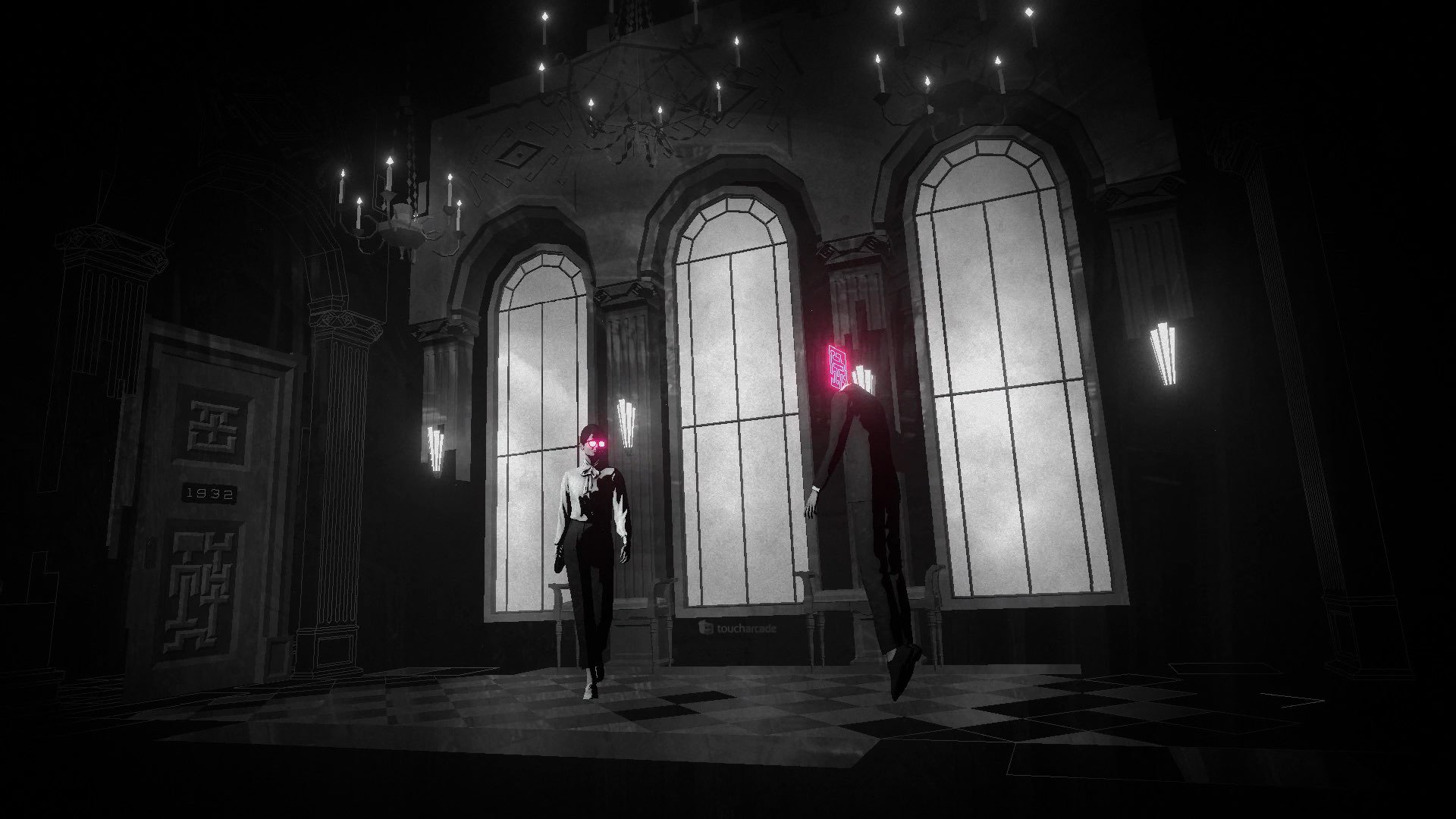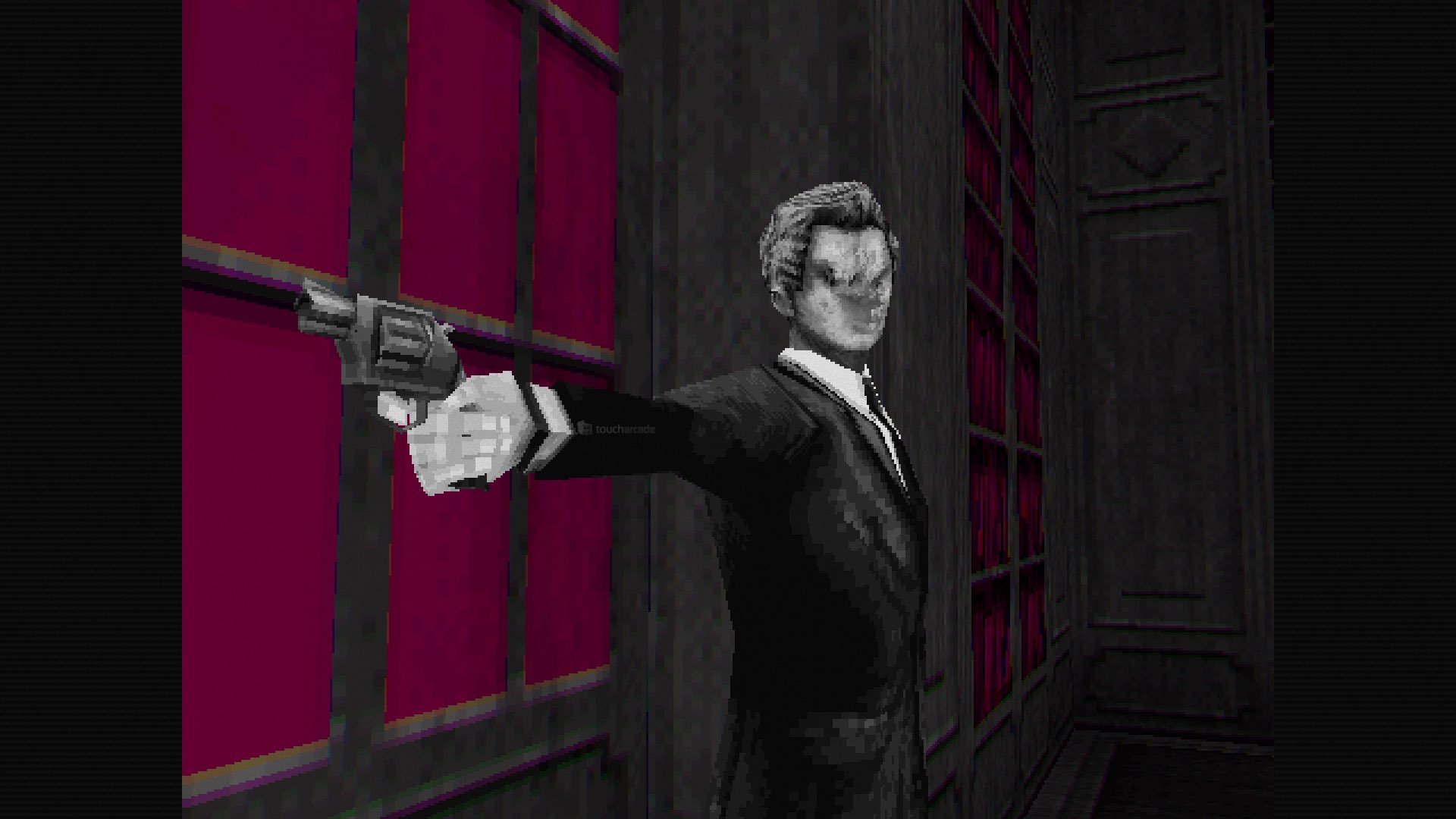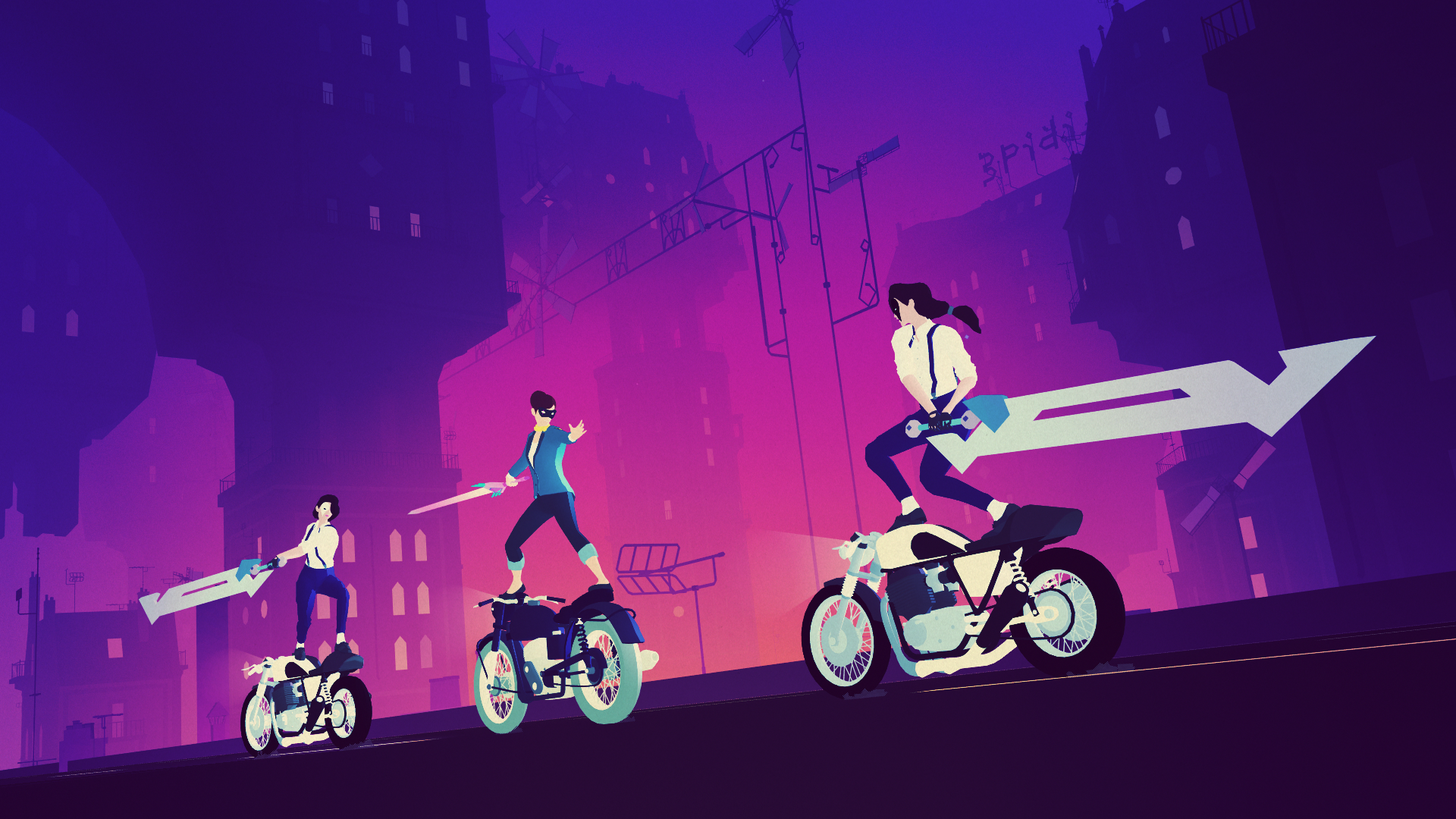 This week, Simogo and Annapurna Interactive are launching Lorelei and the Laser Eyes, the developer’s first game since Sayonara Wild Hearts, on Nintendo Switch and Steam worldwide. I wrote up some early thoughts about the game here. Ahead of this launch (and before I got to play it on Switch), I spoke to Simogo co-founder Simon Flesser about the game, inspirations, working with the Nintendo Switch and Steam Deck, the possibility of ports, physical releases, music, coffee, and more. I will have a full Lorelei and the Laser Eyes Switch review going up in the coming days. I needed a bit more time with it, but it feels basically perfect on the Switch’s OLED screen and has been an incredible experience in the time I’ve put into it.
This week, Simogo and Annapurna Interactive are launching Lorelei and the Laser Eyes, the developer’s first game since Sayonara Wild Hearts, on Nintendo Switch and Steam worldwide. I wrote up some early thoughts about the game here. Ahead of this launch (and before I got to play it on Switch), I spoke to Simogo co-founder Simon Flesser about the game, inspirations, working with the Nintendo Switch and Steam Deck, the possibility of ports, physical releases, music, coffee, and more. I will have a full Lorelei and the Laser Eyes Switch review going up in the coming days. I needed a bit more time with it, but it feels basically perfect on the Switch’s OLED screen and has been an incredible experience in the time I’ve put into it.

TouchArcade (TA): I usually begin by asking for an introduction, but regular TouchArcade readers are well aware of Simogo and your superlative games. Instead, tell us a little bit about how the last few years have been for Simogo with multiple platforms, working with Annapurna Interactive after self-publishing games before.
Simon Flesser (SF): It’s been both good and strugglesome. Sayonara Wild Hearts was a tough project, and it only became tougher as we worked on it. Lorelei and the Laser Eyes, on the other hand, was mostly a joy for the team to work on. Even though the project took big turns and we threw away a lot of finished work when shifting directions, it was a much more joyful and creative process, which I think has strengthened us as a team.
TA: I recently wrote about Lorelei and the Laser Eyes, one of the most fascinating puzzle games I’ve played in ages. It is releasing days from now (based on when this interview was conducted). How have the last few months been for you working on the game?
SF: Over the last five-six months, we have mainly been focusing on localizing the game, and implementing the translations. It’s a complicated and very manual process, as this game has a lot of text and displays them in a lot of different ways.

TA: I’ve always considered every Simogo game worth experiencing regardless of how someone feels about a specific genre because of the creativity on display. What were your inspirations for Lorelei and the Laser Eyes?
SF: Films like L’Année dernière à Marienbad, books like the Magus, the work of Paul Auster and videogames like traditional adventure games and Resident Evil, Zelda and Metroid. We were also inspired generally by the trend of open world games, but we instead wanted to try and create an intimate world, instead of open.
TA: Simogo has developed some of the most interesting games ever like Device 6 and Year Walk being the most common examples. For those unaware about Lorelei and the Laser Eyes, what do you think makes it worth experiencing for newcomers to the genre?
SF: Even though the puzzles are difficult, you never get stuck. Because the game is so non-linear and has so many unique puzzles and interactions to discover, there is always something new to do. And the more you discover, the more you will understand how everything is connected, and be able to solve the mystery. We’ve seen people who usually don’t even play videogames be completely spellbound by it.

TA: Lorelei and the Laser Eyes is pretty simple to control but quite complex in its puzzles. What led to you wanting the game to just have character movement and one interaction button for everything?
SF: There were a number of reasons. We always want to try and challenge established control-standards, and explore how things could be done differently. It was an interesting design exercise to try and boil down all interactions to just one input. We called this design “the always forward” design, meaning that the player could never cancel or back out of anything magically, or skip steps, they had to take the same way out as they came in, and we wanted to make a 100% consistent design where all interactions were created equally.
We also wanted anyone who had never held a controller to be able to play this game, and we wanted it to be playable with only one hand, or even less.
TA: I noticed some puzzles require cycling through multiple numbers or tabs. Are there plans to make this easier to do on a controller?
SF: No. We want the game to feel deliberate, and players to commit to their choices.

TA: In the past, you’ve posted about how Lorelei and the Laser Eyes feels great on Switch and Steam Deck. The former even runs at 60fps and native resolution on Nintendo’s hybrid system. Was Lorelei and the Laser Eyes developed for Switch from the start?
SF: Yes, Switch was always the game’s primary platform. It’s a nice system to develop for as you can bring it with you and test builds when you are on the go. That’s especially for a game like Lorelei and the Laser Eyes, which required so much testing, because of its non-linearity and random generated elements.
TA: Speaking of Switch, Nintendo has featured Lorelei and the Laser Eyes in its showcases a few times now. It was definitely the highlight of the recent Japanese showcase for me. How important have these directs been for you over the years?
SF: It was a really fun thing for us to have our game in them, and it was great to see the Japanese version. How important it is for the game, I couldn’t tell you, I’m not a marketer, and I try to not look too much at numbers.

TA: Sayonara Wild Hearts got a physical release through iam8bit and it was excellent. I bought it on both platforms twice since it is one of my all-time favorites. What should we expect for a potential Lorelei and the Laser Eyes physical release?
SF: No immediate plans as of now, but hopefully it’s something we can do later on.
TA: Lorelei and the Laser Eyes is launching on just Switch and PC. Are there plans to eventually bring it to mobile or other consoles?
SF: There are no immediate plans for other consoles, and it’s not likely it will come to mobile, but who knows.
TA: How was it working with the Steam Deck pre-release for Lorelei and the Laser Eyes?
SF: It just works. Proton seems like some black magic to us. The game is Deck verified, although with Proton 9, a small visual issue for our game was introduced, so we recommend setting Lorelei and the Laser Eyes to launch with Proton 7 for how we intended the game to look, for now.

TA: Have there been any recent puzzle games or just games you like in the genre that inspired anything in Lorelei and the Laser Eyes?
SF: I always keep up and try to play new and interesting releases, but I rarely get any direct inspiration from new games. But I think it can be interesting to play new things and try to understand the reasoning behind designs, and think about their structure.
TA: I remember meeting Gordon back in 2013 in India where I got the Year Walk soundtrack on CD and some pins. For Sayonara
Wild Hearts there were vinyl and cassette releases. Are there any plans to do something similar for Lorelei and the Laser Eyes?
SF: We hope to be able to release the soundtrack physically later on, somehow.
TA: After playing Lorelei and the Laser Eyes on Steam Deck, I kept thinking about how much I’d love to replay it later on with a DualSense on PS5 and with touch controls on iPad. This isn’t a question, but I’m just expressing interest in Lorelei and the Laser Eyes hitting more platforms like those and Xbox. I hope the game does well enough to get ported so more people can experience it.
SF: It has some very nice and subtle rumble on Switch, already!

TA: It has been over a decade since we last interviewed you. A lot has changed since then for not just Simogo, but also mobile gaming as a whole. Are there any plans to revisit your older titles and bring them to other platforms?
SF: We’re always thinking about finding ways to preserve our games, but simply porting them to other platforms would not make sense for games that were designed for mobile. We have been talking for many years about doing a collection of some kind. Who knows what the future holds.
TA: What have you been playing lately outside Simogo’s own titles?
SF: Marvelous: Mōhitotsu no Takarajima, which I think is a real hidden gem. I’ve also enjoyed the remake of Famicom Detective: The Girl Who Stands Behind, Silent Hill 1 and 2 and the Gameboy Color version of Deja Vu.
TA: How do you like your coffee?
SF: Black and medium strong. I used to drink at least five cups a day. Now I only drink one or sometimes none, but I enjoy that cup much more than any of the five I had in my previous life.
I’d like to thank Simon Flesser, Simogo, and Karolina Kecki from fortyseven communications for their time and help here.
You can keep up with all our interviews here including our recent ones with Amanita Design here, Akitoshi Kawazu, Kenji Ito, and Tomokazu Shibata here, Dave Oshry of New Blood, Digital Extremes for Warframe mobile, Team NINJA, Sonic Dream Team, Hi-Fi Rush, Pentiment, and more. As usual, thanks for reading.